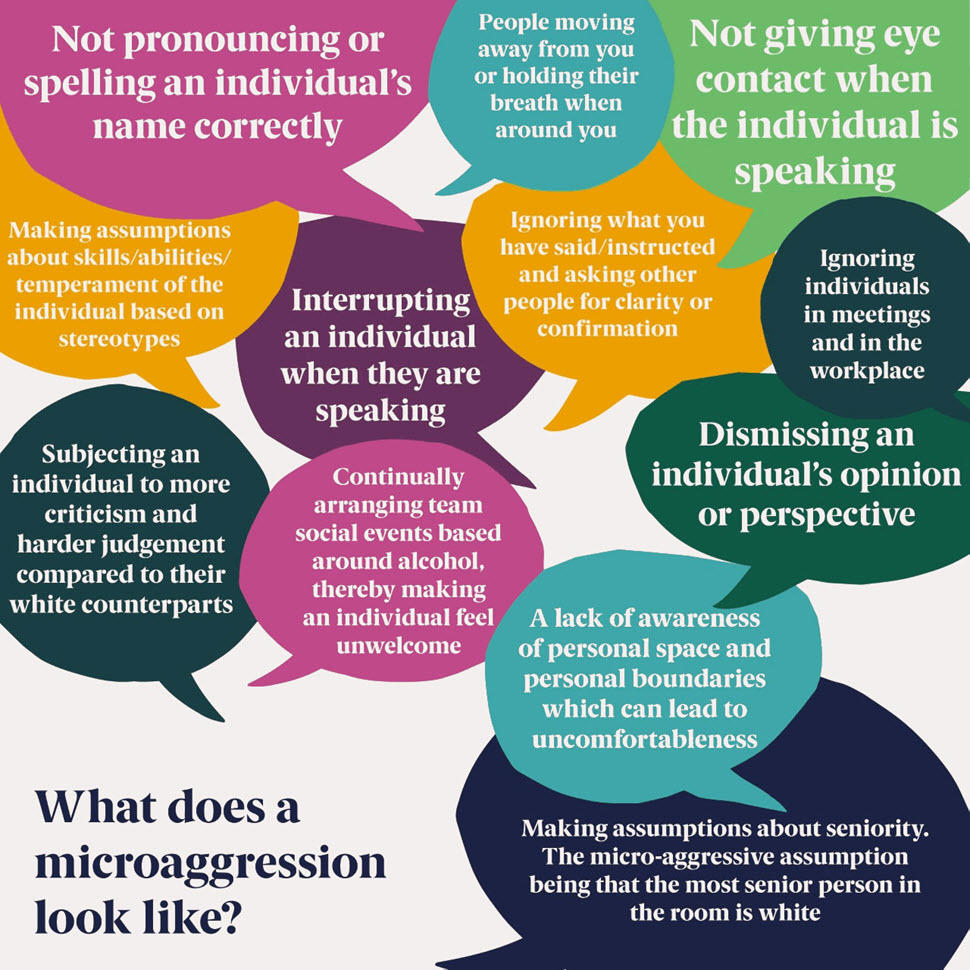From Microaggressions to Triggers
, by Brittany Lord Ph.D., M.S., M.P.H. and Francine Baker, M.S.
Individuals from historically marginalized groups often experience a disproportionate number of traumatic events, including events related to racism and discrimination1. A previous Inclusivity Minute discussed microaggressions, which are subtle, indirect, or unintentional discriminations against a person belonging to a marginalized group2. It is important, however, to recognize that the impact of these microaggressions is often not “micro” to the person experiencing them. These repeated encounters can harm a person psychologically, causing stress, impacting work productivity, and potentially leading to the individual becoming triggered—a feeling of sudden, intense emotional distress when faced with something that reminds one of a past traumatic experience.
In general, triggers “affect your emotional state, often significantly, by causing extreme overwhelm or distress”3. For example, the trauma of seeing repeated images of public brutality against marginalized groups could cause individuals to have an unanticipated reaction to a microaggression in the workplace. As a community, we must stay cognizant of how our words, actions, and inactions can impact those around us. We must stay vigilant by actively and intentionally seeking training and educational opportunities to understand the perspectives of others in our workplaces and beyond.
Learn More
To learn more about how to avoid committing microaggressions, respond if you or a colleague is triggered, and engage with others within the NIH around this topic, see the links below:
- Learn about racial trauma and recognize that your daily words and actions impact the mental health of marginalized groups.
- Learn how to be culturally respectful when you interact with marginalized groups.
- Be an ally and actively combat microaggressions by recognizing and responding to them at work.
- Learn about ways to manage and respond to triggers and know when to walk away3,4,5.
- Test your implicit bias and seek interactive educational tools to learn more.
Resources for NIH Staff
If you would like to provide anonymous feedback or suggestions, please use this one-question survey.
- Participate in NIH LMS courses on microaggressions (NIMHMICRO_104) and strategies for change (NIMHMICRO_102).
- Actively engage in the DCEG Anti-Racism and Inclusivity Working Group.
- Explore learning opportunities in the NCI Equity Toolkit.
- Enroll in the OITE Diversity and Inclusion Seminar Series.
- Seek professional help if additional support is needed. Free short-term counseling is available for all NIH employees through the NIH Employee Assistance Program.
References
- Hoskin, M. “The dangerous impact of racial trauma on the Black community”. Forbes, 2022.
- Limbong, A. “Microaggressions are a big deal: How to talk them out and when to walk away”. NPR, 2020.
- Legg, T. “What it really means to be triggered”. Healthline, 2019
- "Managing your distress in the aftermath of racial trauma and stress". American Psychological Association, 2021.
- "Responding to Triggers". University of Michigan Online (video)
- "Microaggressions". Royal Pharmaceutical Society.
